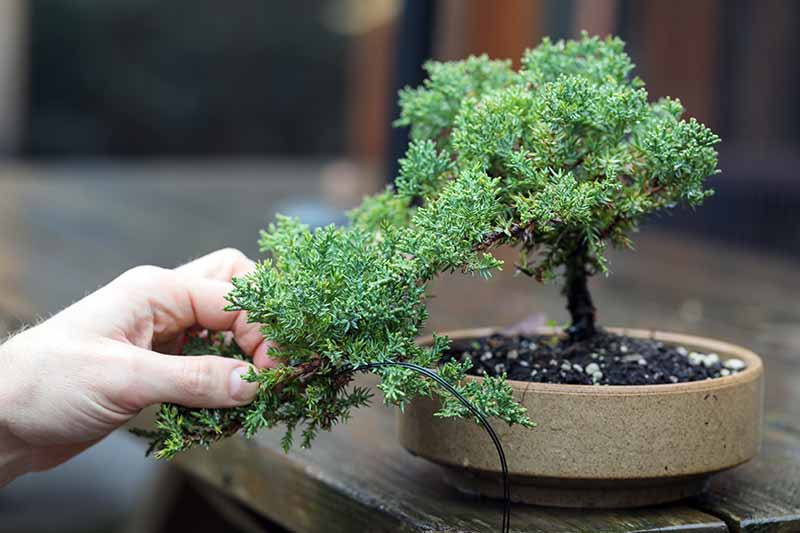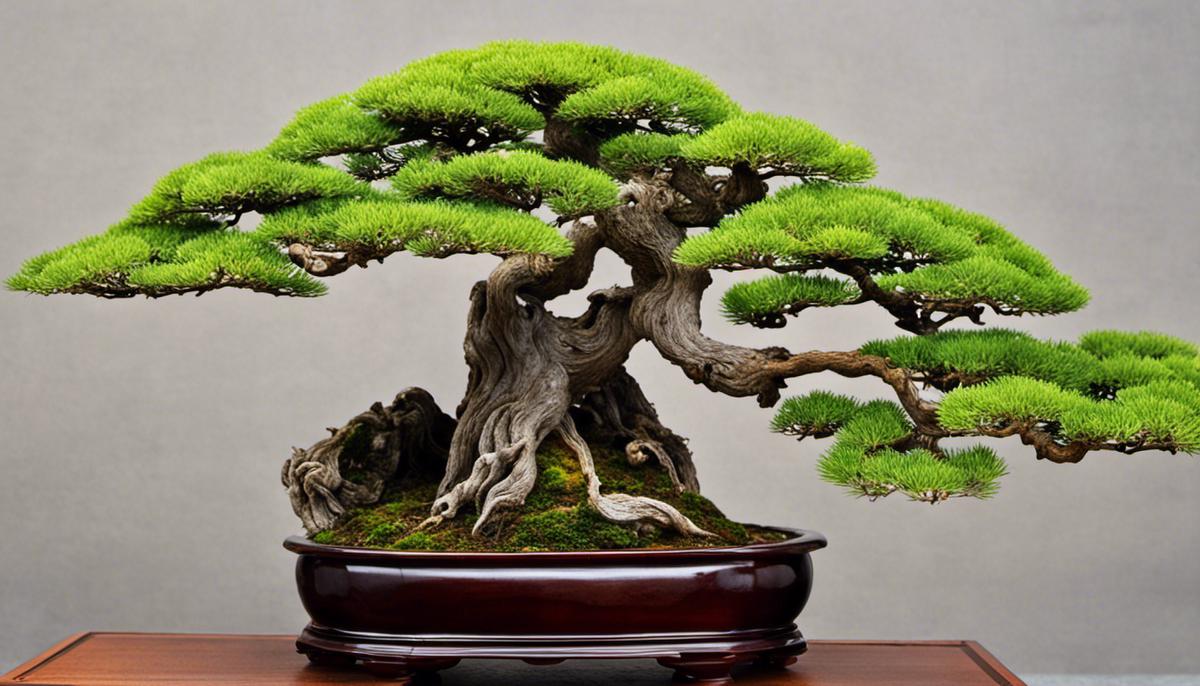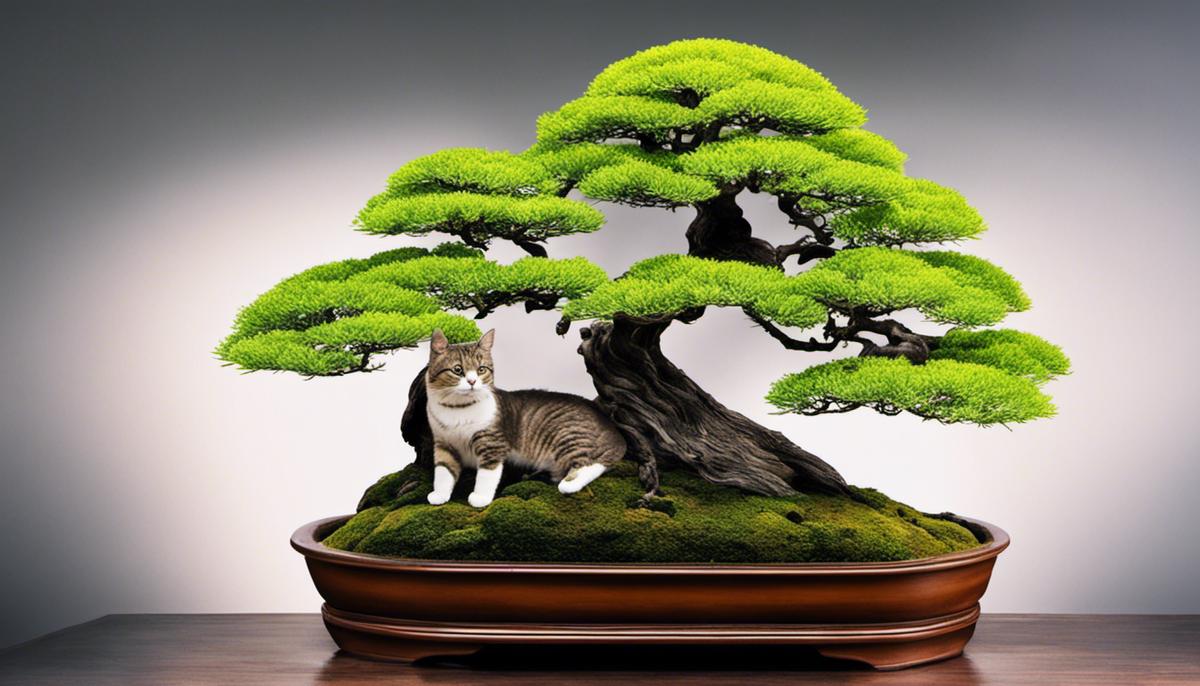Bonsai trees, with their enchanting aesthetics and profound cultural significance, offer an engaging world of horticultural intricacy. As exotic as they are, it’s essential to consider their potential danger to household pets, particularly cats. In order to wholly appreciate this unique type of miniature plant, understanding its various species, distinct characteristics, and general care techniques is crucial.
More importantly, should you be a cat owner, it becomes of heightened relevance to delve into the less often discussed yet potentially critical subject of bonsai tree toxicity in cats. Hence, this discourse serves to enlighten the reader on the dual-fold beauty and potential risks associated with bonsai trees.
Bonsai Trees: What You Need to Know

Bonsai Trees: An Array of Varieties
Bonsai trees are a unique art form that originated in East Asia and have been appreciated by gardening enthusiasts worldwide. These trees come in a diverse range of species, each with its distinct characteristics. Some common bonsai varieties include the Juniper, Azalea, Ficus, and Pine. Their intricately pruned miniature stature is the result of careful cultivation techniques. Despite their small size, these trees embody the same appealing attributes as their full-sized counterparts. Bonsai trees often possess lush leaves, thick trunks, and mesmerizing flowers.
Understanding Bonsai Trees and Safety for Pets
Bonsai trees require detailed care strategies that mimic their natural growth environments. This includes managing sunlight, temperature, and water in very specific measures as well as selecting the right type of soil to maintain the tree. However, within the various types of bonsais, certain components can be toxic, harmful to cats if they happen to ingest them. The level of toxicity can differ between varieties, but common reactions in felines usually involve vomiting, loss of appetite, diarrhea, and general lethargy. To keep your pets safe, it is advisable to position the bonsai trees out of their reach.

Bonsai Trees and Cats: A Potential Danger

Identifying Potentially Toxic Bonsai Trees to Cats
While not all species of bonsai trees are harmful to your furry friends, some can indeed be toxic if ingested. Certain varieties such as the Sago Palm, Japanese Yew, and Jade Plant bonsais are known to be particularly hazardous.
The Sago Palm is filled with toxins, most notably a poison named Cycasin across all its parts, with the seeds being especially harmful. On the other hand, Jade Plant bonsais, also referred to as Baby Jade, Dwarf rubber plant, Jade tree, Chinese rubber plant, Japanese rubber plant, or Friendship tree, contain toxins that may lead to vomiting, depression, a lack of coordination (Ataxia) and a decreased heart rate in cats. Likewise, the Japanese Yew contains a substance called Taxine, that can cause sudden heart failure in pets.
Recognizing Symptoms and Seeking Help

Symptoms of potential poisoning in cats vary based on the type of bonsai tree ingested. Some common signs include vomiting, diarrhea, drooling, loss of appetite, abdominal pain, increased thirst, dilated pupils, and changes in behavior such as agitation or lethargy.
More severe symptoms could include seizures, a loss of coordination, or even collapse. In case of an ingestion or if any of these symptoms are present, immediately contacting a veterinarian is vital. Keeping samples of the vomit or the plant itself can be helpful for the vet to identify the exact toxin and formulate an effective treatment plan. To prevent this dangerous situation, it’s recommended to either place bonsai trees out of cats’ reach or opt for a cat-safe variant.
Knowledge equips us to create a safe environment for both our pets and the delicate bonsai cohabitating with them. The recognition of harmful effects certain bonsai trees might have on cats, the identification of poisoning symptoms, and the understanding of related first aid measures can be real life-savers.
What’s imperative is, as bonsai enthusiasts and cat owners, our passion for nurturing life should never come into conflict. Understanding the potential dangers and taking the necessary precautions makes it possible to enjoy the tranquil beauty of these miniature trees whilst ensuring the safety of our furry friends.
